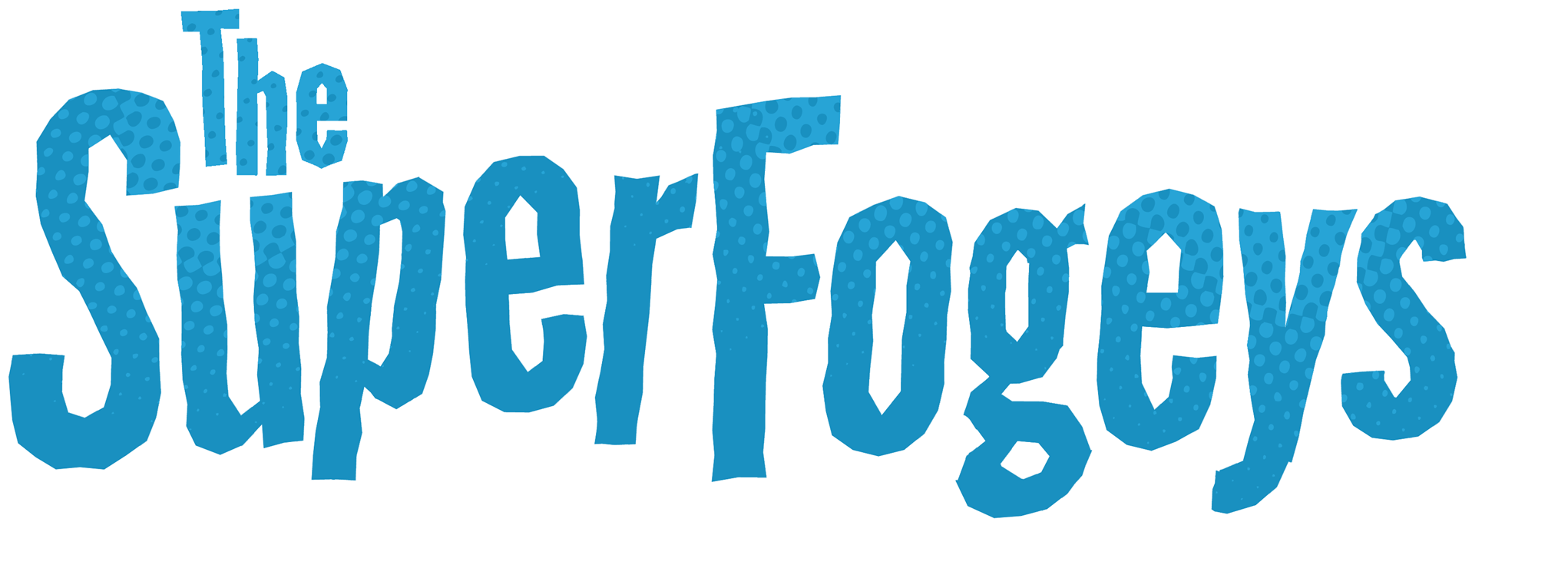I’m going to do what I can to keep this review spoiler-free, but, obviously, if you want to know absolutely nothing going in, turn back now.
Superman is my favorite. More than Batman, Spider-Man, Captain America or Tom Strong, Superman is my go-to superhero. The sad thing about being a Superman fan is that he’s rarely done right. He’s a notoriously difficult character to write and many a great storyteller has stumbled in their attempts to chronicle his adventures. The difficulty is pretty simple: great Superman stories cannot be rooted in plot. He can do pretty much anything and solve just about any problem. Superman is a walking deus ex machina, so the plot is almost beside the point.
What you’re left with, then, is character. It’s too easy to define Superman solely by what he can do, but that’s all surface stuff. Superman is just as much about what he won’t do. What, in his mind, he can’t do. It’s who the guy is underneath that fascinates us; that moral center that allows him to make the hard choices and resist temptations that might more easily beset the rest of us.
So, how does Man of Steel tackle this issue?
Brilliantly.
This is the Superman movie worthy of the character from the first minute to the last. That’s an important distinction. There is much greatness in Superman: The Movie and Superman II, but they’re not all great. Man of Steel is pretty much all great. It gets Superman and it gets what we want to see from a guy who can level mountains with one punch.
The movie begins on Krypton with a scene that, straight off, evokes The Nativity. Director Zach Snyder and Writer David Goyer do not shy away from the Christ allegory that is inherently a part of the mythology of Superman*. Superman is born, his is a special birth, a powerful man wants him dead, the baby is sent away, and then it’s off to the races. I’m selling the sequence short a little (Krypton has been reimagined in great detail–much of it taken from the many versions of Krypton seen in the comics through the years), but this is all prologue and frames up the central conflict between General Zod (Michael Shannon) and Superman perfectly.
*I realize that Superman was created by two Jewish kids and that many see him as a Moses figure, but in the Christian faith Moses is a type of Christ meant to serve as an example of what to look forward to, so it all works out.
I’m confused by early reviews that claim Zod’s motivation is unclear. I don’t think it could be more clear. Zod himself spells it out in the film’s final moments with some dialogue that was, admittedly, a little on-the-nose. Zod wants to save whatever he can of what’s left of Krypton (I’m being vague on purpose), which is an admirable goal. It’s how he wants to go about it that’s the problem, and that’s what forces Superman to make some hard decisions.
Someone asked me last night if it ends well. Too many superhero movies these days have endings that amount to little more than punching and cleaning up. These too-long sequences take character out of the story and assume all we want are visceral thrills. Man of Steel certainly has its share of thrilling, maybe-a-touch-too-long action sequences, but it grounds them in character in a way that holds our interest and makes them much more than pure spectacle. I don’t think it’s revealing too much to say that, for me, the best moment of the movie–and the one in which I decided the film is truly great–comes at the very end. Something happens that I didn’t see coming and… I admit it, I was moved. I don’t usually get teary at superhero movies, but this one did a little number on me.

My ticket to the pre-midnight show. Big thanks to my buddy Alan Pules for picking up tickets for me and Erin.
Henry Cavill as Superman acquits himself incredibly well. As my wife (not a comic book fan) said, he plays Superman with the same qualities Christopher Reeve brought to the role–an unfailing human decency, a mixture of kindness and strength that I have to think is incredibly difficult to pull off. Mind you, Cavill is not doing a Reeve impression. He makes the the role his own in a big, big way.
The other key aspect of Superman’s character that the movie addresses over and over again (to great effect) is that Superman is meant to inspire. The weight of that is almost too much to bear for the young Clark Kent (the film very well could have been retitled Superman Begins), but he gradually comes to an acceptance of this responsibility and fully embraces it. There’s a great moment near the end when Superman’s heroic, godlike fight against evil is juxtaposed with the very human Perry White’s (Laurence Fishburne) attempts to rescue a co-worker from rubble and both actions feel equally as important. Superman’s deeds are meant to do much more than solve immediate problems. He lights the way.
I read recently that Batman is defined by his lack of parents and Superman by his surplus of parents (can’t remember where I read that, sorry). I think that’s astoundingly astute. Still, I was quite surprised by how much all those parents are involved in the story. They play a big, big part all the way through, past the point where you think they’re out of the picture. The story is told largely out of sequence, with frequent flashbacks to Clark Kent’s youth and his relationship with his fathers in particular. Kevin Costner is basically the movie’s MVP and he has a moment about midway through that will haunt you as you leave the theater. Russell Crowe brings a quiet, butt-kicking dignity to Jor-El that it just a pleasure to watch. This is the show My Two Dads should have been.
Lois Lane (Amy Adams) has been completely reconfigured and rethought for this version of the Superman mythology. She’s the same character, but her relationship to Superman and Clark Kent and the dynamic between the three of them has been altered in a way that not only makes a whole lot of sense, but that is also exciting for future movies. (And there will be sequels. The first one has already been greenlit.)
There’s so much more I could say, but not without getting into big spoiler territory. Going in, I’d read ecstatic-to-middling reviews of the film. It’s definitely not a perfect film–there are some odd pacing issues here and there and I wish Superman were a little more conscious of innocent bystanders–but it worked like gangbusters for me.
I look forward to seeing what comes next. Man of Steel ends on perhaps the most perfect exchange of dialogue that I’ve seen in quite a while. (I can’t believe no one else ever thought of it before.) And that line of dialogue holds within it a promise of great things in the future. I can’t wait.
Written by : Brock Heasley
kjhsdf sdkjhf kjhsdf sdjhsd fkjhsdf sdjhf sdfkjhsd f sdfhjsd sdfsdf sdfjhksdf





Brock, great review as always. Here’s mine…I struggled a lot with that thing you mentioned at the end. Let me know what you think: http://geekleagueofamerica.com/2013/06/14/movie-review-man-of-steel/
Great review, Jeff! I just commented on yours. We disagree a bit, but I think you state your case well.
[…] on a follow-up to my Man of Steel Review from last week. In my review, I didn’t get into any spoilers, but the ending has proved to pretty […]
[…] Store var cpmstar_rnd=Math.round(Math.random()*999999); var cpmstar_pid=6676; document.writeln(""); ? ‹ Previous […]
[…] I wrote my review for Man of Steel, the rest of the world got a chance to see the movie and reaction has been… mixed. […]
Beautiful review. Really. I am not a Superman fan, never was (I’m a huge Costner fan though), and i wasn’t going to see the movie.
Now I will, based solely in this review.
Good job.
j
I agree with those reviewers who said that “Man Of Steel” was joyless. It was. There was no joy, no light, no color (at least not without annoying lens flares) and everything was dark and brooding and conflicted. The palette of the film was dull and dark, the mood in every scene was dark and somber, Clark and Pa Kent’s relationship was one serious “thou shalt not” after another and even Pa Kent’s death was purposely stupid just so the author can have Clark standing there powerless (“NOOOOOOO!”) as he watches his beloved father get killed pointlessly. Really? In the first place, why does Pa send the young, athletic kid off to the underpass while he puts himself in danger? Clark could have saved the dog *without* using superspeed and made it to the underpass. Similarly, he could have run out at more or less human speed to save his Pa. Instead, Costner’s character, apparently tired of life, just decides to traumatize his whole family. Stupid, clumsy writing.
And the ending which you think is so great, Brock? Horrible. Again, stupid, clumsy writing for the sake of a shock ending. Superman – the Superman I like – always finds a way, and the times he doesn’t it should be the huge shocker of a lifetime. Don’t waste it in the first film, for corn’s sake. (because we KNOW there’s going to be a sequel) He should have found a better way – like sending Zod into the Phantom Zone again with all the others instead of giving us what felt like half an hour more of fatiguing, Godzilla-like carnage. Not that I have anything against using the new, impressive digital tools, it’s the incredible OVER-use of them that, in the end, began to be just numbing. Also, as all these buildings are falling down around them because of their fight, I am wondering how many other people Superman just killed by punching Zod through downtown instead of hoiking him out over the bay or the desert or the Moon or something. Stupid. The fatalities in a showdown that destructive would have been in the thousands. Seriously. If we’re gonna be “realistic,” that’s kind of where my mind goes. It’s wonderful how civilians are conveniently absent as these characters punch each other through office buildings and restaurants at mach 5, and no bloody smear of an “oops!” to be seen. BUT when it comes time for Zod to purposely goad Kal El into killing him, there they be, ready to present him with the Devil’s Choice.
Superman is the hero in the light. Batman is the hero in the dark. The Dark Knight is the brooding, conflicted one. Superman should be the one who is better than all of us, and joyfully so. Something we aspire to, the best of all human traits – a Super Man. Now, apparently, all heroes have to be dark, brooding, conflicted and isolated. It’s the fashion, so away with light, banish moral clarity, our fantasies have to live in a world exactly like our own. (Except, of course, for lens flares)
Except they really can’t. None of them can. By definition the fantasy creates its own world that has different rules. So this is just another fantasy, albeit a dark one, with rules that are just as arbitrary as the light fantasy. And in filtering Superman excessively through a dark lens, it feels to me like the film makers are guilty of doing what Vonnegut’s dystopian government did in “Harrison Bergeron -” making sure our Superman has arbitrary weights and limits and anxieties and conflicts because otherwise he might actually be *better* than the audience themselves, and we can’t have that these days.
I love fantasy, and I love Superman. Also, I actually thought it wasn’t that bad of a movie – very good, in places- but it wasn’t really enjoyable, unfortunately.